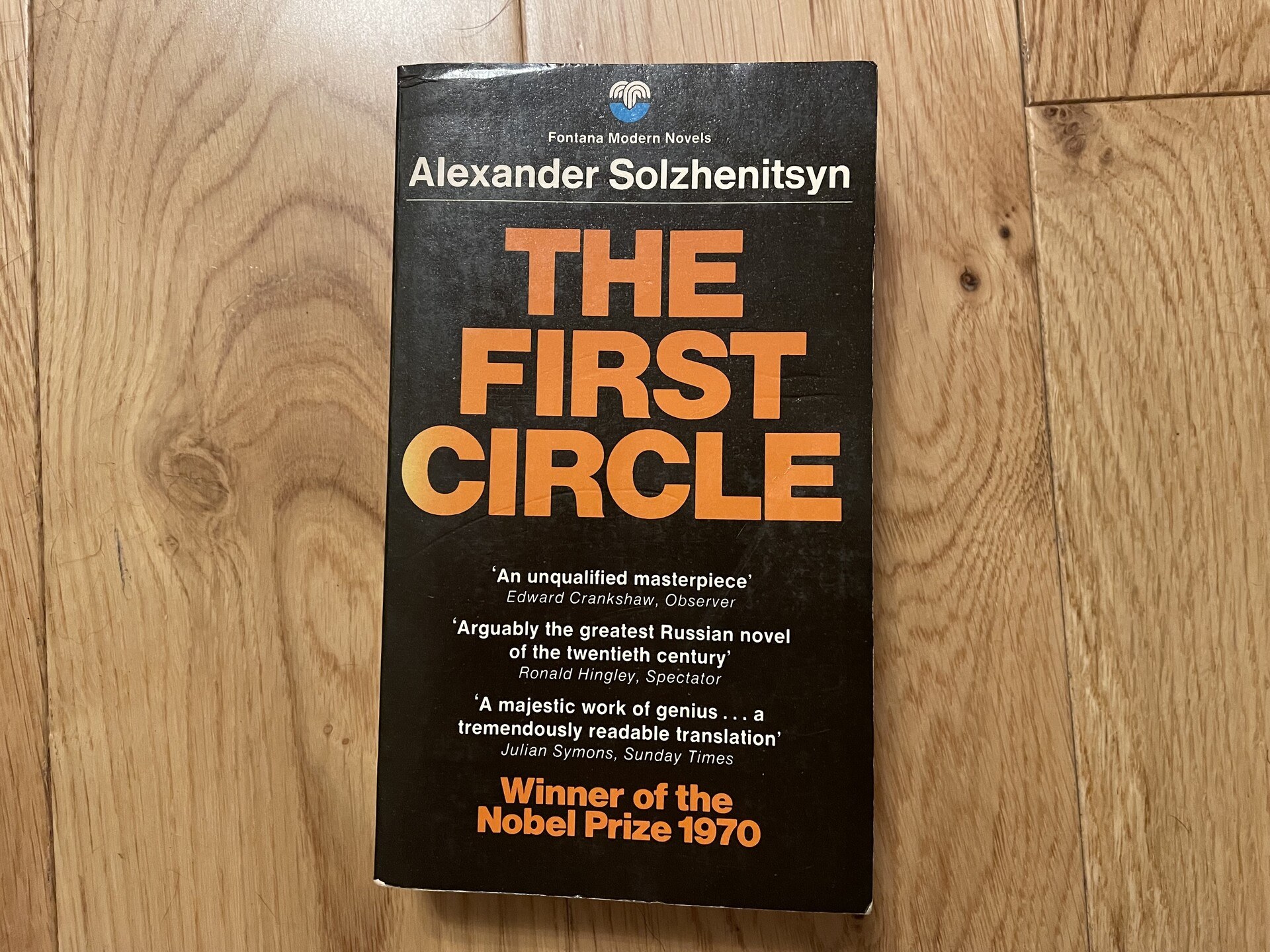The First Circle
by Alexander Solzhenitsyn
Published 1968 699 pages
Where Life and Fate sprawls, The First Circle narrows its focus: instead of a variegated cast spread across the war front, gulags, and backwoods towns of central Russia, Solzhenitsyn's story takes place almost entirely within the walls of a "special prison” called Mavrino, where political prisoners of an intellectual bent build technological knick-knacks to oppress and surveil as a reward for improved living conditions. Not for them the hard labour of Siberia, but make no mistake: they are still prisoners of the State. Letters from home are withheld, buttons are removed from their clothes, bathroom breaks meted out on a schedule. The prisoners joke that they’re living in the first circle of hell, like from the Inferno: a cushy position, for a prisoner.
The main part of the book takes place over the course of three days at Mavrino. The prisoners are tasked with building a special telephone scrambler to encrypt Stalin’s communications in real-time, but the prison administration is engaged in a complicated tangle of responsibility-shifting and the prisoners themselves are apathetic and unmotivated, so the scrambler is wildly behind schedule. People’s lives are on the line, but when called for an audience with Stalin himself, the Minister for State Security avoids the topic and Stalin forgets to bring it up.
One of the Mavrino prisoners, Lev Rubin, is also tasked with matching a voice on a recorded phone call to one of 5 potential suspects; while Rubin makes significant breakthroughs, he's unable to narrow it down beyond two potential voices. Impatient, the order is given to arrest both suspects. When Rubin protests that they'll be arresting at least one innocent man, the prison chief retorts,
"Innocent? What d'you mean?" Oskopulov's green eyes opened wide in astonishment. "Not guilty of anything at all? The security service will sort that one out."
At points throughout, Solzhenitsyn takes us outside of Mavrino to give us glimpses of the pervasiveness of the absurd system. A group of prisoners are given a day of warm showers, clean clothes, and plentiful food only to discover they're being paraded before Eleanor Roosevelt, on a diplomatic mission to inspect prison conditions; Stalin lounges in his private study, frustrated and friendless, musing on who to get rid of next; an upper-class group of friends debate philosophical ideas at a dinner-party; a prisoner's wife mourns the state of her life and bickers with her roommates.
The effect is to paint a picture of a massive system of oppression, continually crushing the life out of those stuck in it, powered by engines of fear and blame.
Still, there's hope in the strength of the individual: by the end of the book, one of the men arrested in the wake of Rubin’s work on speech identification finds a sort of solace within himself; several Mavrino prisoners stop cooperating with the authorities out of a refusal to put anyone else in prison, despite the looming threat of transfer to a labour camp in Siberia. Solzhenitsyn’s novel is optimistic in that way: while suffering is unavoidable under totalitarianism, individuals are capable of standing up against it, in however small a way. It makes the eventual fall of the Soviet Union seem a lot more inevitable than it must have felt when the book was written in the 1960s.
Stray observations
- The most crushing scene in the book is of a prisoner, having lost everyone but his wife, learning that the prison administration has been keeping his wife's letters from him. She's been writing regularly of her crushing poverty and despair, of the death of her grandmother, and abuse at the hands of the children who live with her. The administrator is concerned that the prisoner’s wife’s negative outlook is damaging morale on the outside, and urges the prisoner to write back and set her straight.
- When we went to Riga in 2022, our guide at the KGB headquarters had been imprisoned for circulating samizdat back in the 1980s—among which were the writings of Solzhenitsyn.